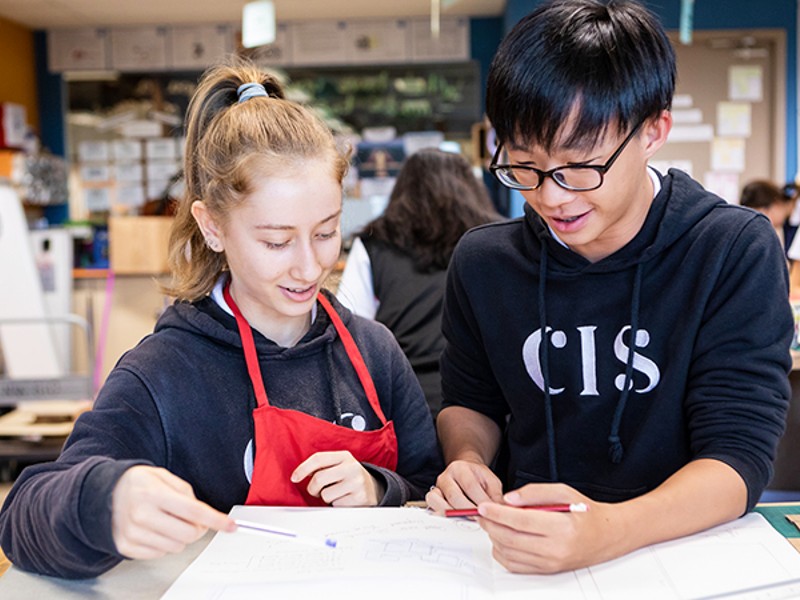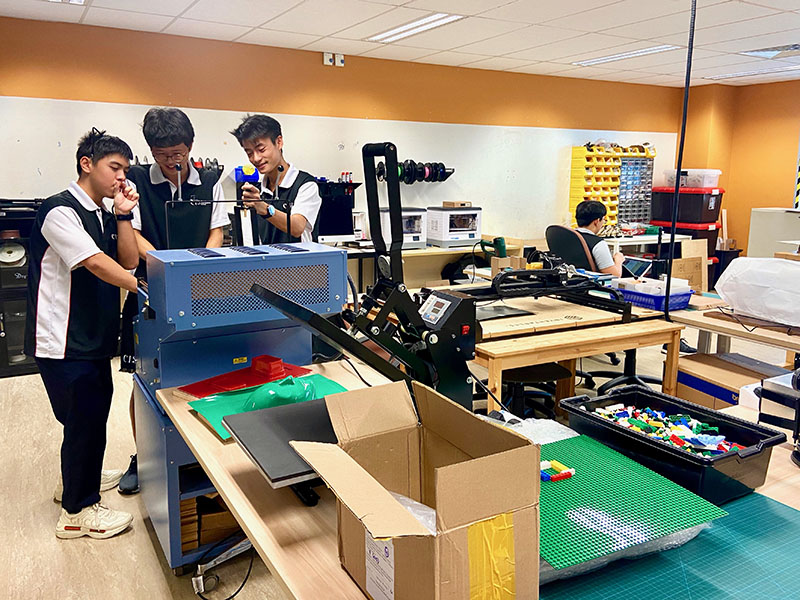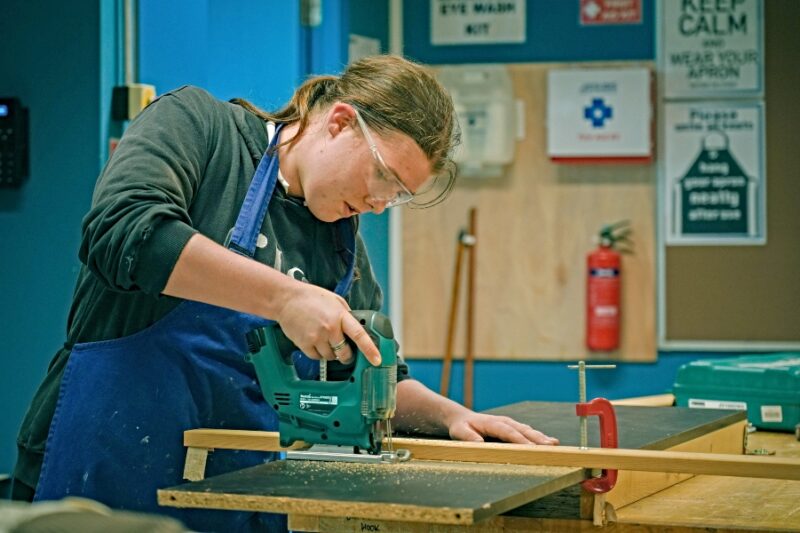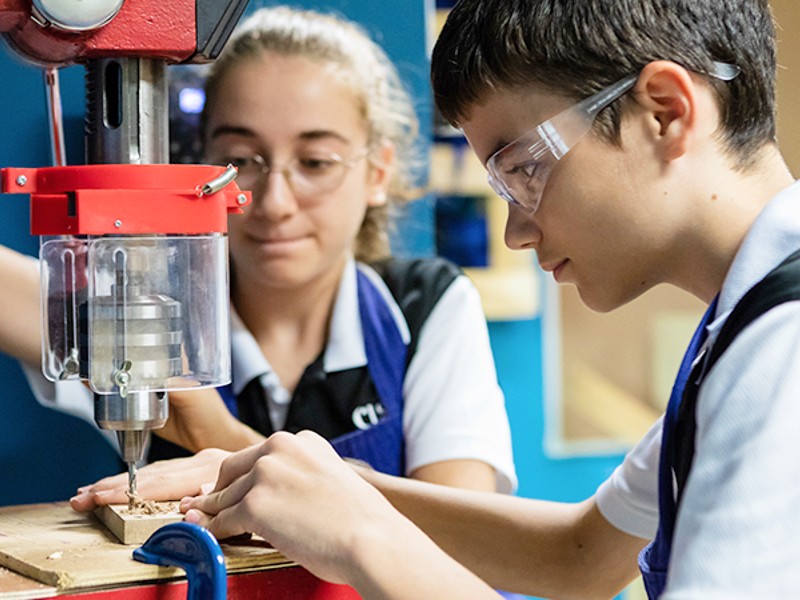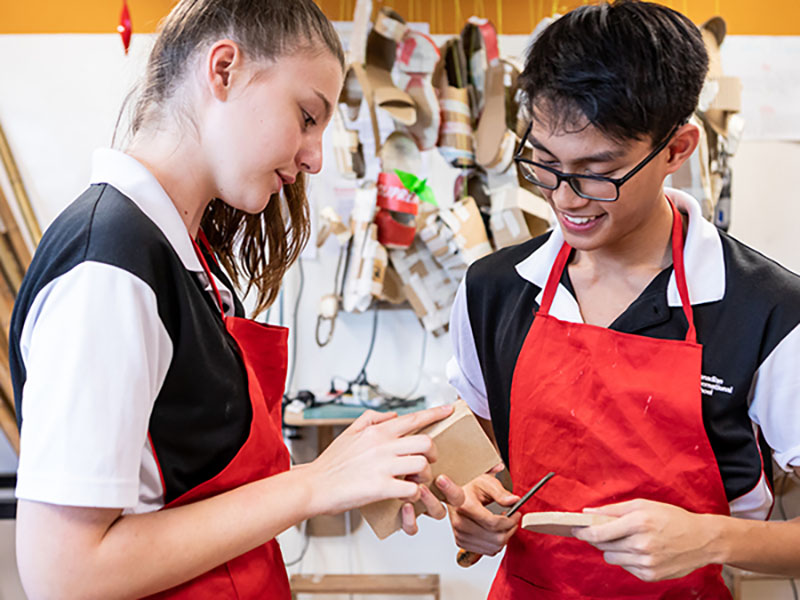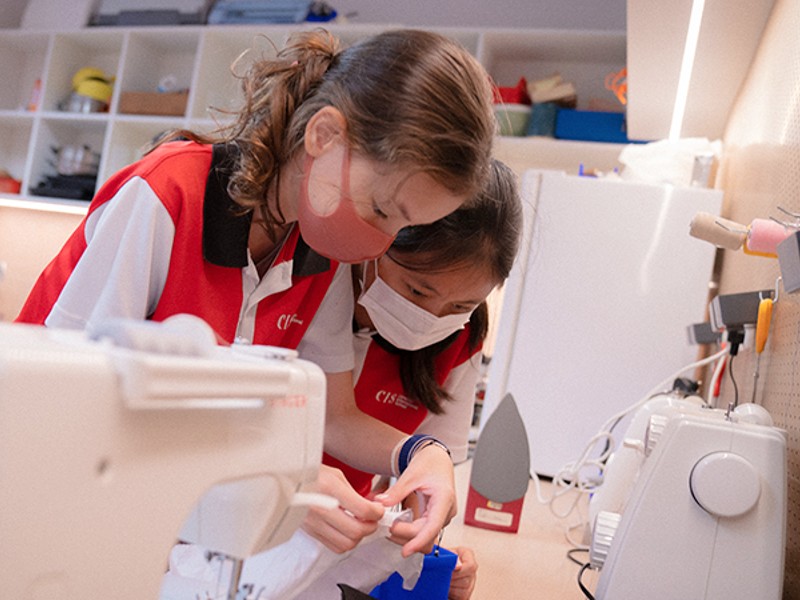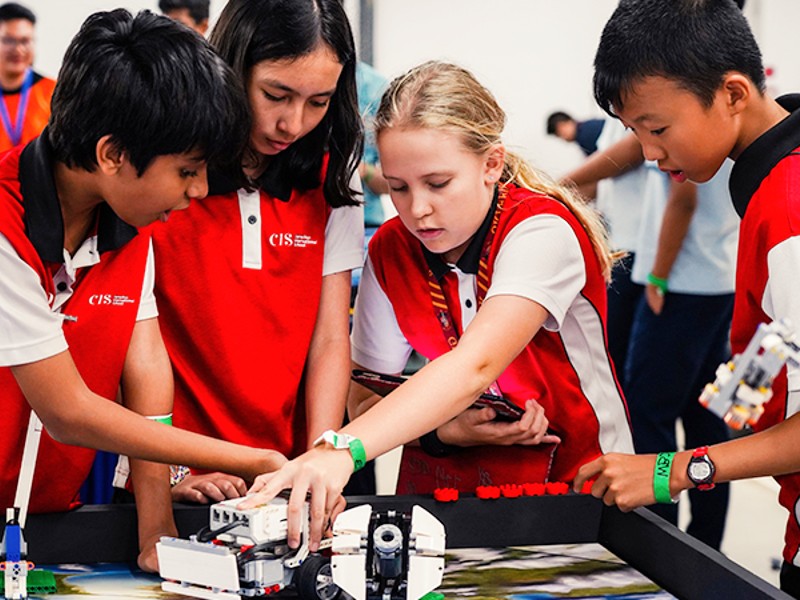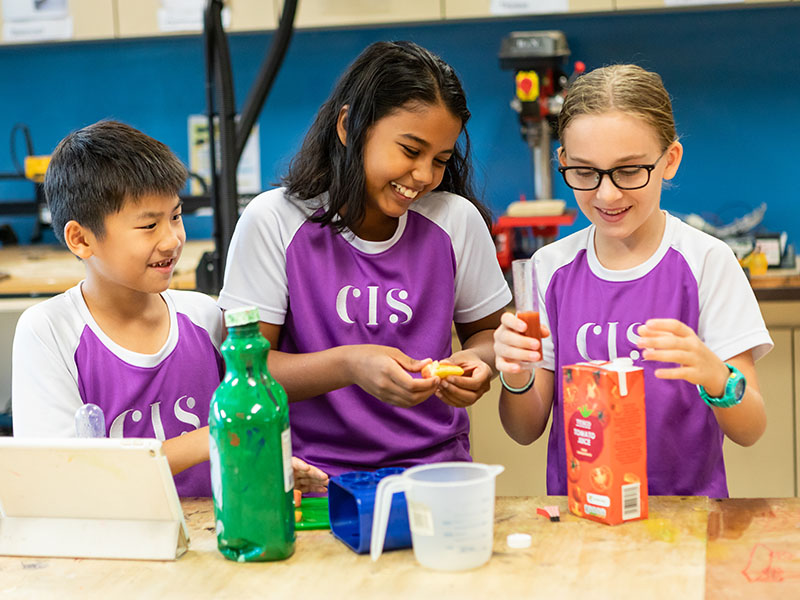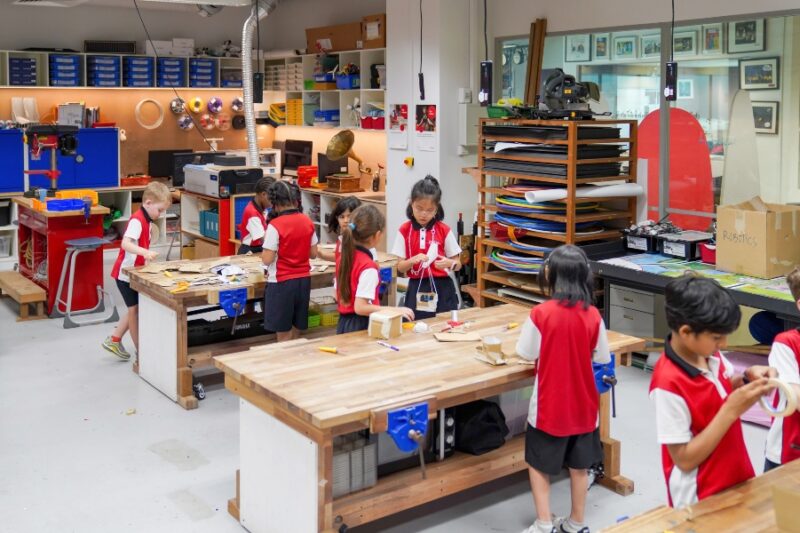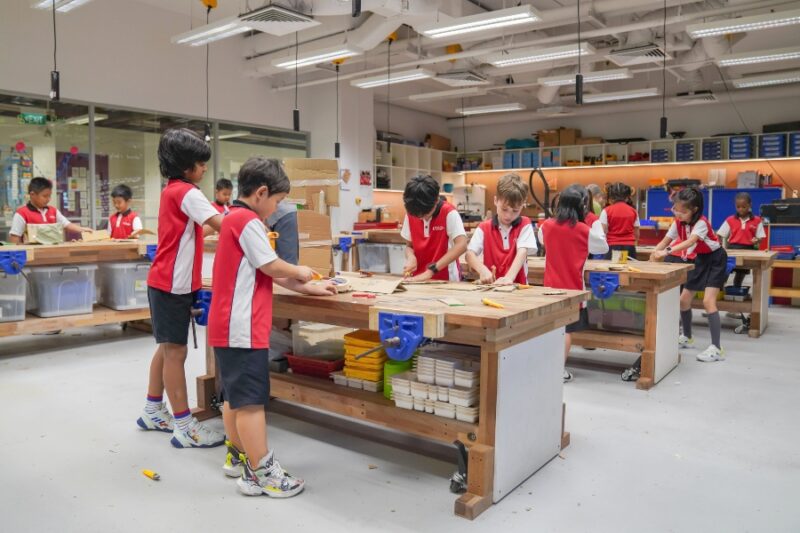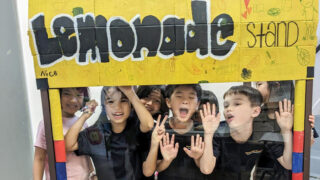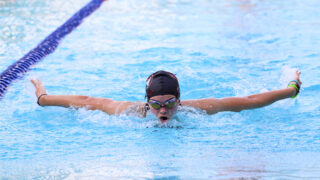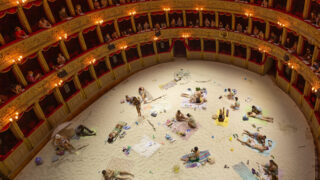Top Singapore International Schools and preschools are increasingly incorporating Science, Technology, Engineering, Arts and Mathematics (STEAM education) or Science and Technology, Engineering and Mathematics (STEM education) into their curriculum. This allows students to learn, explore, design and create, in and out of the classroom. Here’s a look at what a handful of these schools get up to each day with STEAM and STEM education, including the Canadian International School, Dover Court International School, and more!
Canadian International School Singapore
STEAM education at the Canadian International School (CIS) is not just about using iPads, interactive TVs or learning to code. It’s an engaging interdisciplinary approach that integrates the areas of science, technology, environmental studies, arts and mathematics. STEAM and STEM education are hands-on and student-led; it sees students exploring problems and potential solutions across different disciplines. Whether it’s in the school’s dedicated STEAM makerspaces – which are part lab, part shop, part conference room – or elsewhere on campus, this unique learning approach helps students to develop essential skills like problem-solving or critical thinking that are crucial to success in the 21st-century workforce.
Teachers integrate appropriate subject areas into learning, depending on the concept being explored or the activity in question. Recent CIS STEAM education include a grade 1 project that sees students integrating science and technology, maths and art to learn about forces, motion and design while building their own moveable toy. In grade 6, students used 3D computer software to create scale models to study the maths and science behind natural phenomena on earth. Projects like these rely on collaboration as peers conduct research and problem solve. Students are encouraged to think creatively and critically while they create and test possible solutions and come to understand that challenges, they face can’t be solved through one discipline alone. Instead, they need to think creatively and approach problems from multiple perspectives.
A word from a student
“I get to create and explore lots of different materials. For example, I made a helicopter with blades at the top and it spun! I got to choose what I wanted to do to show how the energy transforms from the battery, electricity to kinetic energy.
– Bea C, Grade 3
7 Jurong West Street 41
6734 8088 | cis.edu.sg
Dulwich College (Singapore)
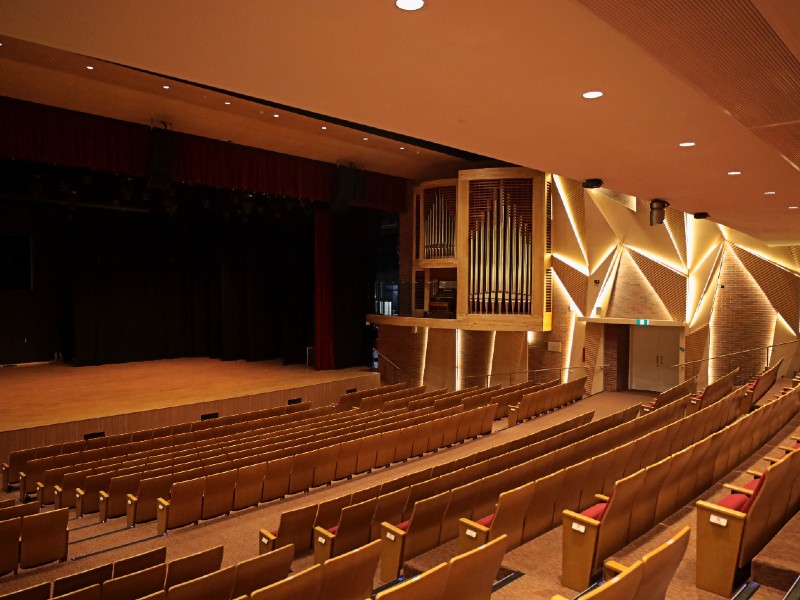
SE21 isn’t just the postcode of the founding school in a suburb of London, it also represents Dulwich College’s unique philosophy to teaching and learning when growing innovators and entrepreneurs of the future:-
- S: Science, Technology, Engineering, Arts & Mathematics
- E: Entrepreneurship and Environmental Sustainability
- 21: 21st Century Skills developed in the school’s Approaches to Learning Framework
From the ages of two to 18, Dulwich students follow a concept and inquiry approach, integrating the fundamentals of STEAM education into exciting projects and learning, guided by the student’s interests. Specialist teaching spaces in science, visual and performing arts, design & technology and computer science allow Dulwich learners to access state-of-the-art equipment and facilities to engineer and develop solutions to real-world problems.
The partnerships that the school has established similarly support this approach. Besides regular artist-in-residences from Singapore and internationally, the school also conducts workshops and programmes for students to enhance their knowledge and skills in a certain genre. Across the Junior and Senior schools, young engineers are supported by the James Dyson Foundation in design and technology lessons. The ‘One Campus, Many Colleges’ network of Dulwich Schools enables Dulwich students to make links internationally through cross-arts collaborations and STEAM challenges. In selecting these partners, the school is mindful of bringing diversity and representation of different careers and backgrounds. This allows Dulwich students to understand the complex variety that the future may hold for their endeavours in industry.
A word from an educator
“STEAM opportunities provide students with a portfolio of transferable skills in preparation for further study or the fundamentals to “Live Worldwise” as an independent artist, designer or engineer. We aim to provide world-class facilities, teaching and learning, and enrichment opportunities for students from Dulwich College Kindergarten School to IBDP.”
– Kathryn Hall, Director of Visual Art and Design & Technology
71 Bukit Batok West Avenue 8
6890 1003 | singapore.dulwich.org
Dover Court International School Singapore
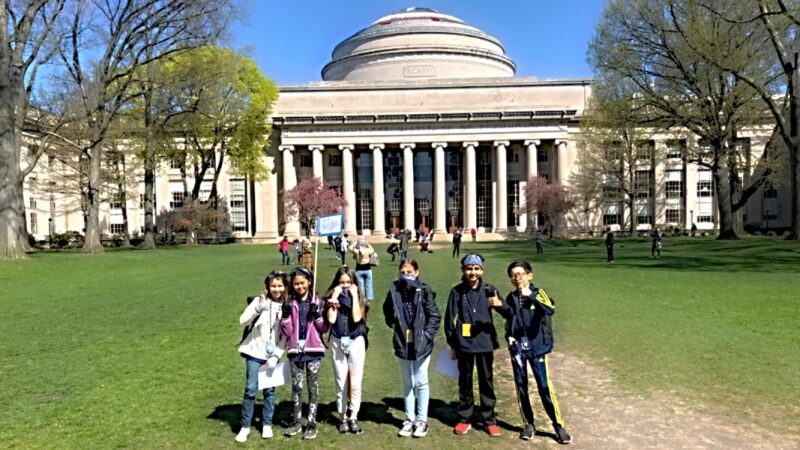
Year 5 students at Dover Court International School (DCIS) were tasked to use coding in identifying and solving a real-life problem in Singapore. Through plenty of research, using both online and offline resources, they agreed that waste management and how to sort household waste was an area that needed improvement. The students from Dover Court then created Trash Dash, an educational game to help people in Singapore obtain a greater understanding of how and what to recycle and how to sort their rubbish.
STEAM education is an integrated part of the Primary curriculum at Dover Court. Through Nord Anglia Education, the students access a global programme that inspires them to look beyond individual subjects. This sparks their curiosity through a hands-on interdisciplinary approach to problem-solving. Guided by Massachusetts Institute of Technology (MIT), the world’s leading institution for STEAM and STEM education, the students take part in challenges and visit MIT on a trip led by experts from the university. This collaboration also gives Dover Court teachers the opportunity to learn from specialists in the world of STEAM and STEM education, coming up with cutting-edge lessons that inspire students.
A word from a student from Dover Court
“We wanted to teach others how to recycle correctly, so we came up with the idea to create an educational game. We built the controller using Lego and then we used micro:bits that we coded. The idea is that you pick up a piece of rubbish and then you use the controller to drop it in the correct recycling bin.” – Celyan, Year 5
301 Dover Road
6775 7664 | dovercourt.edu.sg
Nexus International School
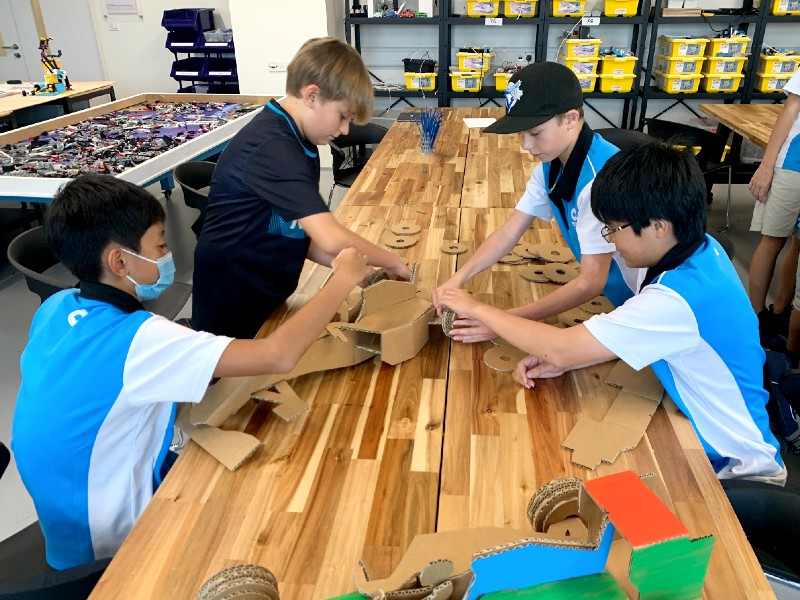
Nexus encourages its learners to see the world from a global perspective. They’re taught to become independent through experiences within and beyond the classroom, and technology is embedded in the learning process to enhance creativity. As a school with STEAM and STEM education, Nexus encourages its learners to be creative in all they do; it has designed bespoke learning environments that guide learners to thrive. For example, the school’s studios allow learners to work across ceramics, art and maker spaces to explore their creative spirit. Nexus uses music and drama to nurture the arts. The school’s music programme offers opportunities for learners to participate and achieve their potential through bands, choirs, ensembles, orchestras and CCAs to follow musical passions. There’s a programme by the London Academy of Music & Dramatic Art (LAMDA) that focuses on developing learners into confident communicators through areas such as drama, literature and poetry. Through LAMDA, Nexus is offering additional fine-tuned performing arts classes for learners who wish to pursue their passion.
The school’s innovative approach to learning has helped it secure the high-profile accolade of an Apple Distinguished School. There are only three such schools in Singapore; to receive the title, they were required to demonstrate educational excellence, a commitment to innovation and exemplary learning environments that aim to stimulate, inspire and impact students’ lives.
A word from a student
“I think that the way the STEAM framework is used in all the subjects makes sure that everyone is exposed to it so it potentially sparks new creativity and curiosity. We don’t just learn facts from books, we actually get to explore in a lot of different ways and it makes it very fun and exciting.” – Kaspar, Year 8
1 Aljunied Walk
6536 6566 | nexus.edu.sg
Kinderland Academy Preschool
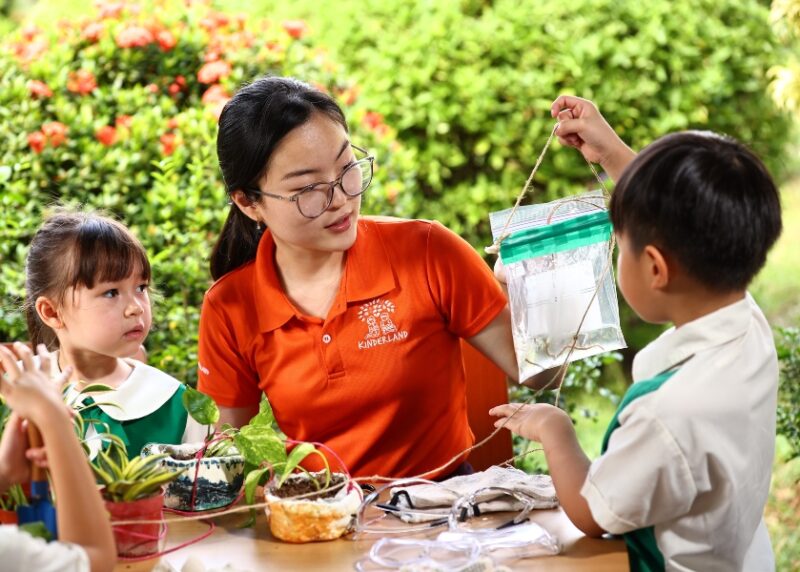
It’s common to see STEAM or STEM education as part of a school curriculum; Kinderland takes things to a higher level by adding reading and writing into what it calls its STREAM (Science, Technology, Reading & writing, Engineering, Arts, Mathematics) programme. The school says that including a focus on language literacy makes for a well-rounded education, fully integrating these and all other domains. The STREAM programme enables preschoolers to take on inquiry-based project work and learn these subjects hands-on. From idea development to conceptualising, researching and creating prototypes, to constructing and assembling the actual structures, children are actively involved in leading and problem-solving their queries. Adding fun elements into academic components gives them the opportunity to think, plan, communicate and break down a big project into sizable tasks; they also enhance their social skills and build resilience and confidence as they overcome issues during the course work.
Kinderland children put STREAM knowledge to practise with projects. An example is the award-winning initiative named the Young Master Builder, where preschoolers from Kinderland Academy @ Yio Chu Kang built a water sprinkler using recycled. The project won the Early Childhood Innovation Award (Commendation) 2022, recognising the preschool’s efforts to nurture children through innovative practices. Children went through the entire process of discussing and brainstorming, research and planning, drawing project designs, material selection, and creating prototypes before assembling and constructing the actual product. Through picking up new skills such as measuring and reading the measuring tap and discovering that pipes assembled by using a combination of t-joints and elbow joints could engineer a whole new system, Kinderland preschoolers created a unique waterplay activity for the children at the preschool. Projects like these take place in everyday classroom and outdoor at Kinderland. Outdoor learning experiences and STREAM projects excite curious children with an active desire to investigate, learn and know more about their natural environment.
A word from the school
“Children grow creatively when they engage in hands-on scientific enquiry. Through the iterative STREAM process, children develop communicative and reasoning abilities through brainstorming and discussions, as well as, resilience, a growth mindset and creativity. Their research, observations and interactions help in the creative process where they develop solutions to the problems they face when working on a project.
“For instance, when planning and drawing a new design that incorporates the best parts from shortlisted prototype designs, children learn to problem-solve and formulate the right proportion to include selected elements in their final project structure. For their latest STREAM, the children designed and constructed indoor garden structures that incorporate gardening water systems. They explore ideas where they can tap on green inventions that allow for indoor botany such as constructing vertical gardens and hanging gardens with drip irrigation and ways to manage water drainage and leakage. Kinderland children are involved in every step of the project, and every task is a learning opportunity.”
– Dr Carol Loy, Director of Curriculum & Professional Development
15 locations islandwide
kinderland.com.sg
Read more in our Schools section or our Things to do in Singapore pages!

